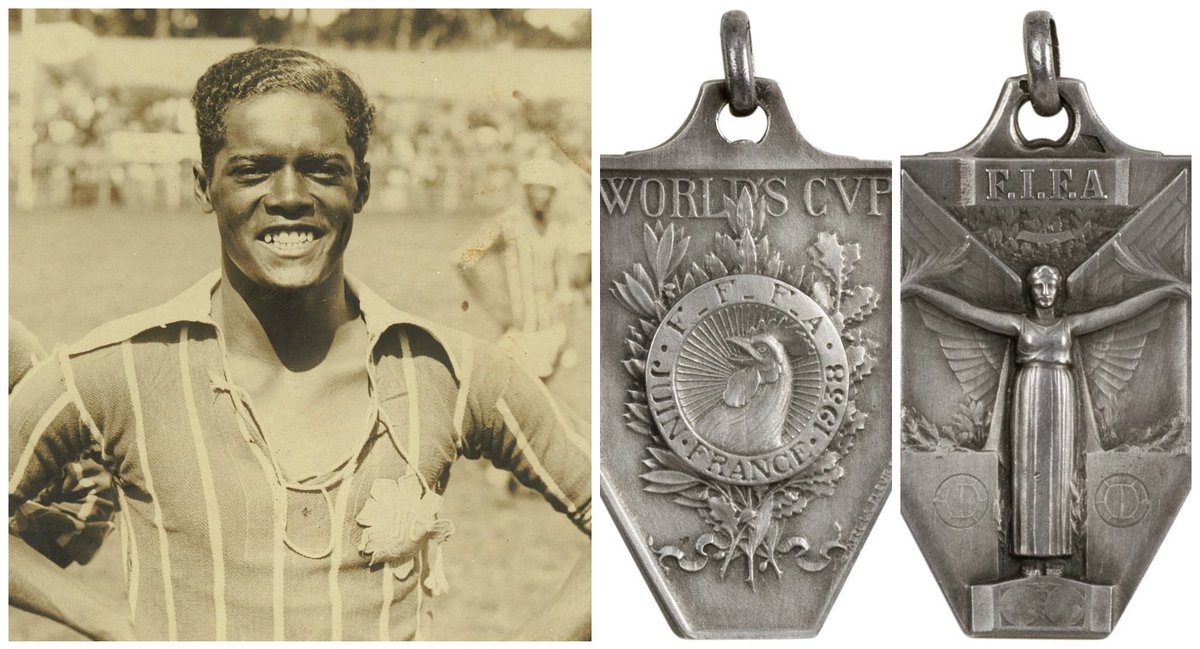(FIFA.com)
© Getty Images
These days, the scenes would be very different.
Just imagine Brazil returning from a FIFA World Cup™ without the Trophy, their defeat in the last four widely attributed to arrogance, complacency and a bungled team selection. A hero’s welcome, such as the one captured in this image of Rio de Janeiro’s packed streets, would be unthinkable.
Just imagine Brazil returning from a FIFA World Cup™ without the Trophy, their defeat in the last four widely attributed to arrogance, complacency and a bungled team selection. A hero’s welcome, such as the one captured in this image of Rio de Janeiro’s packed streets, would be unthinkable.
Yet this was 1938, the year in which Brazil fell madly in love with World Cup. Their team had been the only South Americans representatives in France for that year’s tournament and had looked well placed to triumph, with an impressive run to the semi-finals best remembered for an exhilarating 6-5 win over Poland.
The hat-trick hero of that victory, and star of their campaign, was Leonidas da Silva, known as ‘the Black Diamond’ or, due to his agility, ‘the Rubber Man’. With their star striker in the form of his life, the Brazilians looked – and felt – unstoppable, so much so that their main party of officials left for Marseille, venue of the semi-finals, before their quarter-final against Czechoslovakia had even kicked off.
Yet this self-assurance proved to be Brazil’s undoing in the last four, when they rested a weary Leonidas and two of the team’s other stars, Tim and Brandao, to keep them fresh for the Final. Plane tickets for Paris were also purchased in advance of a seemingly certain place in the decider, but holders Italy had other ideas and sent the South Americans back to Bordeaux for a third-place play-off.
Leonidas duly returned and secured his place as the tournament’s top scorer by netting his sixth and seventh goals of the tournament in a 4-2 win over Sweden in which he also claimed an assist. It was thanks largely to the striker’s heroics, this in a World Cup beamed nationwide for the first time, that Brazil afforded the team the kind of reception seen above in several of its cities.
“When we passed through Salvador the crowd very nearly overwhelmed me,” Leonidas recalled. “It was so hard for me to get through that I even lost a shoe.”
For Brazilians, it had been the start of enduring love affair with the World Cup, one which fortified the country’s passion for the beautiful game. As Getulio Vargas, Brazil’s then president, wrote of 1938: “The game of football was everywhere.”
Did you know?
Nearly eight decades after leaving France with its proud owner, Leonidas’ participation medal from the 1938 World Cup returned to Europe in 2013 to rest at the FIFA World Football Museum in Zurich. This came about when museum officials were alerted to a newspaper profile of the great man’s widow, Mrs Pereira dos Santos, who spoke of being at a loss as to what to do with her late husband’s most treasured mementos. Now, this Brazilian icon is celebrated at the museum with an exhibit in which this medal takes pride of place.
Nearly eight decades after leaving France with its proud owner, Leonidas’ participation medal from the 1938 World Cup returned to Europe in 2013 to rest at the FIFA World Football Museum in Zurich. This came about when museum officials were alerted to a newspaper profile of the great man’s widow, Mrs Pereira dos Santos, who spoke of being at a loss as to what to do with her late husband’s most treasured mementos. Now, this Brazilian icon is celebrated at the museum with an exhibit in which this medal takes pride of place.
Man and medal: The 1938 @FIFAWorldCup's top scorer Leonidas and his participation medal from the tournament



The real love has started from the year 1938 but it is still warm and in every world cup we see no team closer to Brazil. It is the reason, I love that team that has the passion to win only and this win is the result of their fitness and agility provided to them but the Physiotherapy North Ryde so tat their every move is for the gold cup they are playing for.
ReplyDelete